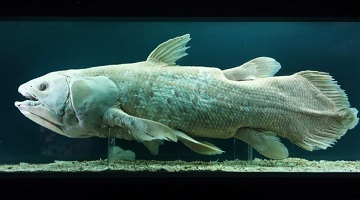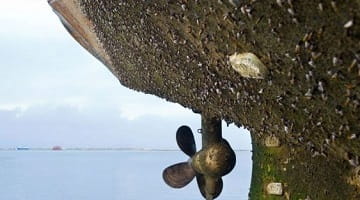Why study this course with LJMU?
- Field trips to Greece, the Lake District, North Wales and the North West coast included in fees*
- Additional opportunities for overseas field trips to places such as Iceland*
- Focus on practical and field based learning activities so students develop applied skills and graduate work ready
- Access to brand new, state-of-the-art Geographical Information Systems and analytical equipment
- Regular extra curricular employability events, giving students the opportunity to network with high profile companies
- Options to undertake work placements of 4-6 weeks and/or 12 months
- Options to study abroad for part of the degree with support from schemes such as the Go Global Fund and Erasmus+
- 100% of students surveyed said teaching staff were good at explaining things (NSS 2024)
About your course
Exploring the way in which our physical environment develops and how humans affect natural processes and interact within the world form the basis of the BSc (Hons) Geography with Foundation Year. This vocational programme offers plenty of opportunities to apply your knowledge in practical contexts.
About the Foundation Year
The Foundation Year is ideal if you have the ability to study for a degree but don't have the qualifications to enter directly onto the Geography honours degree programme. Once you pass the Foundation Year you will progress directly onto the first year of the honours degree. If you are a full-time UK student, you will qualify for student financial support for the full duration of your course (subject to eligibility criteria).
About BSc (Hons) Geography
The degree offers you opportunities for overseas fieldwork, currently including a core Level 5 trip to Greece to study a range of environments impacted by development and tourism and subject to a variety of natural hazards. In Level 6 we also run optional field trips in tectonically active, volcanic or glacial environments (current destination is Iceland) to study topics such as climate change, geohazards, landscape development, environmental change and sustainability.
Not only are these field trips an important aspect of the study of geography, they are also, unsurprisingly, a highlight of the programme for our students. All day and residential field trips for core modules are funded by the University. The Level 6 expedition is optional and self-funding is required.*
As well as studying a range of highly topical subject areas, you will also have access to the latest Geographical Information Systems facilities and state-of-the-art field equipment and analytical laboratories. The course also offers ample opportunity for work-related learning.
Course modules
What you will study on this degree
Further guidance on modules
Modules are designated core or optional in accordance with professional body requirements, as applicable, and LJMU’s Academic Framework Regulations. Whilst you are required to study core modules, optional modules provide you with an element of choice. Their availability may vary and will be subject to meeting minimum student numbers.
Where changes to modules are necessary these will be communicated as appropriate.
Core modules
Skills and Perspectives in Science 1
20 credits
20 credits
This module aims to develop your basic knowledge and research skills and covers scientific perspectives, writing, data handling and statistical analysis.
Wildlife Studies
20 credits
20 credits
This module provides you with a broad overview of the diverse range of disciplines comprising wildlife studies.
Skills and Perspectives in Science 2
20 credits
20 credits
This module provides you with an appreciation of some modern scientific issues that are commonly discussed in the press. You will also cover a selection of topical subjects in biology, chemistry and related areas, alongside developing a range of academic, research and transferable skills related to your programme of study.
Anatomy and Physiology
20 credits
20 credits
This module enables you to examine the concepts of homeostasis, communication and transport within organisms. It also provides an introduction to human functional anatomy using a systemic approach to the organisation and function of organs and tissues in the human body.
Understanding the Environment
20 credits
20 credits
This module provides you with an understanding of the earths natural systems. You will study the global environment and characterisation of the Earths main biomes, atmosphere and climate, the hydrological cycle, the rock cycle, formation of soils, biodiversity, human environments and human-environment interactions.
Building Blocks of Life
20 credits
20 credits
This module provides you with an overview of key concepts in cell biology, including the chemical basis of the biosciences. Throughout the module you will gain an understanding of the basic concepts of cell biology and chemistry for the natural sciences, which you will learn through a series of lectures, workshops and practical laboratory sessions.
Core modules
Methods Skills and Careers 1
20 credits
20 credits
The aim of this module is to provide you with practical experience in the methods employed by geographers to collect, statistically analyse, present and interpret primary and secondary data. You will develop quantitative and qualitative practical skills, as well as observational skills and be introduced to self reflection on personal and academic development.
Earth Systems
20 credits
20 credits
This module will provide you with an introduction to the Earth from a geographical perspective and explores how the various global systems are linked and interact with one another.
Human and Physical Landscapes
20 credits
20 credits
The aim of this module is to develop your knowledge and understanding of the processes that shape the natural environment, and equip you with the theoretical, observational and practical skills required to analyse the landscape.
Hazards
20 credits
20 credits
This module introduces a range of natural, anthropogenic and cascading hazards, including pollution, flooding, hurricanes, volcanic eruptions, earthquakes, wildfires, pandemics, heatwaves and human conflicts, etc. The causes and impacts from these hazards to the physical and human environment are explored, along with the latest adaptation and mitigation strategies used.
Environment Society and Sustainability
20 credits
20 credits
Within this module, you will examine the relationship between environment, society and sustainability in the context of increasing concerns about human impacts on the environment. You will focus on issues in relationship to population, economic growth, resource use and distribution and social welfare in order to outline different scientific, technological, social and political approaches to handling 'real world' issues.
Methods Skills and Careers 2
20 credits
20 credits
This module will provide you with practical skills in the methods used by geographers to collect, present and interpret primary and secondary data. You will develop both quantitative and qualitative practical skills and field based observational skills.
Core modules
GIS and Employability
20 credits
20 credits
This module aims to inform research, inquiry and communication through development of geographical skills and provide you with increased professional and subject specific understanding. It will also introduce you to Geographical Information Systems (GIS) and key methods of data and database management.
International Environments
20 credits
20 credits
The aim of this module is to facilitate your understanding and evaluation of processes in global environments through an international field class examining, recording, interpreting and evaluating field evidence in a range of natural and anthropogenic landscapes. It will also provide an opportunity to identify the diversity of culture in the wider international context. You will be able to develop an understanding of spatial and temporal variation and themes around sustainability across geographical studies.
Project Design and Management
20 credits
20 credits
This module is an introduction to practical project design and management in theory and through structured learning exercises on the topic of Climate Change including project preparation.
Optional modules
Sandwich Year - Geography
120 credits
120 credits
The aim is to provide students with an extended period of work experience at an approved partner that will complement their programme of study at LJMU. This will give students the opportunity to develop professional skills relevant to their programme of study as well as the attitude and behaviours necessary for employment in a diverse and changing environment. This extended placement forms a key part of a sandwich degree. All placements need to be assessed and approved prior to commencement in line with the LJMU Placement Learning Code of Practice. The Code of Practice requires students to conduct themselves in a professional and responsible manner during the placement - failure to do so may lead to the placement being terminated prematurely. Placements are normally for one calendar year on a full-time basis. Split placements of a shorter duration may be permissible. There is an expectation that a minimum of 1200 hours will be spent in the workplace.
Environmental Pollution
20 credits
20 credits
This module will introduce the processes that drive the functioning of two major (terrestrial and marine) environments of the Earth with a view to their deeper understanding, evaluation and management. You will develop an appreciation and assessment of capabilities of the environmental impact of humans (e.g. pollution, deforestation, ocean acidification) on natural environments and ecosystems. You will develop skills in acquiring, processing and interpreting environmental data.
Urban Geography
20 credits
20 credits
Within this module, you will develop an understanding of a diversity of impacts of urban spaces and processes on the wellbeing of people and the natural environment. It will also provide you with the conceptual, analytical and methodological skills to critically engage with the causes and consequences of these issues via independent thought and study.
World Archaeology
20 credits
20 credits
The aim of this module is to provide theoretical knowledge on societal development from an archaeological perspective and some practical experience in archaeological analytical techniques.
Study Year Abroad - Geography
120 credits
120 credits
The aim is to provide students with an additional year of study at an approved overseas partner that will complement their programme at LJMU. This is an additional year of full-time study at an approved higher education institution. The modules to be studied must be agreed in advance, and must be appropriate for the student's programme of study. Assuming successful completion of this year, mark-bearing credit will be awarded by the Faculty Recognition Group. The grade conversion scale to be used will be made available in advance of the year abroad.
Study Semester Abroad - Geography
60 credits
60 credits
The aim is to provide students with a semester of study at an approved overseas partner that will replace one semester of their LJMU programme at level 5.This is a semester of full-time study at an approved higher education institution which will replace one semester of level 5 study at LJMU. The modules to be studied must be agreed in advance, and must be an appropriate substitute for the modules being replaced. Assuming successful completion of this semester, mark-bearing credit will be awarded by the Faculty Recognition Group. The grade conversion scale to be used will be made available in advance of the semester abroad.
Cryosphere, Catchments and Oceans
20 credits
20 credits
This module will provide students with an appreciation of fundamental processes that operate in(and link) the cryosphere, catchments, riverine, coastal and marine environments in relation to climate change. To equip the students with the necessary skills and techniques that are used for monitoring and comprehending these changing environments.
Responding to Climate Change
20 credits
20 credits
This module will examine the social and political responses to climate change, through both mitigation and adaptation strategies, via examination of specific topics and case studies at different scales. To highlight how climate change and responses to climate change are associated with (sustainable) development processes and challenges. It will also provide you with an appreciation of how climate change is subject to different interpretations and solutions.
Global Issues, Local Challenges
20 credits
20 credits
This module aims to provide you with a clear understand of the key issues facing the world, including geographical, biological, ecological, economic, and social threats. You will have the opportunity to analyse a wide variety of quantitate and qualitative data to develop an understanding of the localisation of these issues.
Core modules
Dissertation
40 credits
40 credits
The Dissertation provides you with the experience of investigating a research topic under the guidance of an academic tutor.
Optional modules
Work-Based Learning
20 credits
20 credits
This module provides relevant, stimulating and career-orientated experiential learning to encourage you to develop transferable skills relevant to the work environment and to foster initiative and independence of thought.
Sustainable Natural Heritage
20 credits
20 credits
This module explores the relationship between human culture and environmental conservation through the natural heritage concept. Integrated conservation schemes and projects are investigated to find out the extent to which sustainable use of natural resources at local and regional levels can help to achieve long-term environmental conservation goals.
Coastal and Marine Management
20 credits
20 credits
The aim of this module is to understand the main sustainability issues surrounding coastal and marine environments. You will study the scientific principles necessary to the efficient and sustainable management of coastal and marine environments and their application in a wide range of local, national and international contexts. You will also be able to develop the practical skills and knowledge required by professional environmental regulators and consultants working in coastal and marine management.
Environmental Modelling and GIS
20 credits
20 credits
The aim of this module is to provide you with a critical understanding of different environmental modelling techniques and to develop skills in the selection and application of appropriate models to investigate a range of environmental phenomena.
Environmental Change
20 credits
20 credits
Within this module, you will examine, interpret and evaluate the evidence for Quaternary environmental change using appropriate proxy techniques and dating methods.
River Monitoring and Management
20 credits
20 credits
The aim of this module is to introduce and analyse the main water-related legislative and management frameworks that environmental regulators and consultants work within. You will study the application of scientific principles to the management of contemporary river management issues and evaluate the methodologies used to investigate, monitor, manage and improve river environments.
Cold Environments: Processes and Change
20 credits
20 credits
The aim of this module is to provide you with an opportunity to apply knowledge and skills gained in previous lecture-based modules to a new geographical setting, by carrying out detailed data-collection. You will critically evaluate the importance of field-based observations and analyses within the context of the wider literature and develop a wide range of transferable skills in measurement technique, research design, effective communication and group work.
Renewables and Low Carbon Futures
20 credits
20 credits
Within this module, you will examine the relationship between energy systems, society and contemporary environmental challenges and how a low-carbon energy future can be achieved. The module will aid your understanding of the environment and social benefits and limitations of different kinds of energy generation resources and technologies. It will also outline the key factors in moving to a 'low-carbon' energy future in a way that is socially equitable and sustainable.
Catastrophic Futures
20 credits
20 credits
Visions of catastrophic future events that undermine the very basis of survival saturate the public sphere and give rise to a contemporary atmosphere of fearful anticipation: from scientists’ dire warnings about climate futures, to environmental activism, to Hollywood blockbusters. Yet apocalyptic world endings have a history and a geography, are unevenly distributed, and intersect with other understandings of the future. In this module we will analyse multiple forms of knowing, governing, representing and resisting environmental futures. We will consider competing claims over the political and socio-cultural work that catastrophic narratives perform, and what our visions of the future reveal about present-day concerns.
Your Learning Experience
Excellent facilities and learning resources
We adopt an active blended learning approach, meaning you will experience a combination of face-to-face and online learning during your time at LJMU. This enables you to experience a rich and diverse learning experience and engage fully with your studies. Our approach ensures that you can easily access support from your personal tutor, either by meeting them on-campus or via a video call to suit your needs.
Teaching is via a combination of lectures, interactive workshops, fieldwork, laboratory sessions, online activities and small-group tutorials; the amount of time you spend in each varies according to the module and the level of study.
You are expected to do additional research around lecture subjects in your own time using the University Libraries and virtual learning environment, Canvas.
As the course progresses, the amount of practical and field-based work increases, allowing you to develop field and research techniques and complete an independent research project.
Work-related learning
Work-related learning is a crucial element of your studies, and the best way to experience the world of work is by opting to undertake a 12-month placement between Levels 5 and 6.
With the support of a placement tutor, you will be given the opportunity to work for a geography or environment-related organisation and put into practice skills and knowledge gained in your first two years of study.
As well as giving you a chance to develop personal skills and take a break from formal study, this experience will add real value to your CV and significantly boost your employability prospects. In fact many of our students have subsequently been offered work with the same organisation or through contacts made. There is also an option to do a short (4-6 week) placement in level 6 and put together a portfolio about your experience.
International mobility at LJMU
LJMU offers a range of international exchange opportunities that enable students from the School of Biological and Environmental Sciences to spend some months at a foreign institution to develop their self-confidence, adaptability and cultural awareness. The specific opportunities may change from year to year, however the following programmes are currently available to all students in the School of Biological and Environmental Sciences:
- Study abroad at a university in Europe using Erasmus+ or at one of our partner universities in the US
- Work abroad by taking part in internships in Europe using Erasmus+, in Asia via the Asia Internship Programme or anywhere on Earth using the Go Global Fund or Smaller Earth
- View the current programmes available on the LJMU website.
Dedicated personal tutor, plus study skills support
You will be allocated a personal tutor who will arrange one-to-one meetings with you to discuss your progress. They will also hold small tutorials so you can discuss course material with fellow students. In level 6, an academic supervisor will advise and guide you through your research project and also hold small group tutorials related to preparing you for the workplace.
Should you decide to take a year out on placement, a placement tutor will liaise between you and potential employers and help you to find a suitable post. Once you are settled in your placement, you will have regular support from an academic staff member who will visit you in your workplace to check on progress.
The school is fully committed to promoting a learning environment that supports a culture of equality, diversity and inclusivity (EDI) and has a Disability Support Coordinator, an EDI Coordinator and a School EDI Working Group. Personal Tutors also play a vital role in promoting awareness of support services for students.
Assessment varies depending on the modules you choose, but will usually include a combination of exams and coursework.
Most modules are assessed by coursework only, although there are some (less than a third) that have an exam component. We acknowledge that all students perform differently depending on the way they are assessed. At the same time skills acquisition is one of the principal aims of the programme. This is why we use a range of assessment methods, weighted towards coursework.
- Coursework may be in the form of fieldwork/practical/professional reports, essays, blogs, GIS and lab exercises, oral and poster presentations, group discussions, practical and employability skills evaluations.
- The small number of exams may include multiple choice, short answer, problem-based learning and essay questions.
Some assignments are done in groups. Your final year research project will be assessed by a portfolio that could include progress reviews, presentations and skills evaluations and a dissertation.
Where you will study
What you can expect from your School
You will study at the Byrom Street site in the university's City Campus in the heart of Liverpool. You will have access to first class teaching facilities, laboratories and study areas. The Avril Robarts library is within easy walking distance and here you'll find all the information you need to support your studies.
Course tutors

Dr Neil Simcock
- Programme Leader
It’s great to be able to teach a subject I am passionate about, one which I am actively researching and one which is so relevant at the moment
It’s great to be able to teach a subject I am passionate about, one which I am actively researching and one which is so relevant at the moment
Dr Simcock studied BSc (Hons) Human Geography, MSc Environmental Informatics and completed a PhD in Renewable Energy at Lancaster University. On completing his PhD, he worked as a researcher and lecturer at Keele, Lancaster and Manchester Universities, before joining LJMU in 2018. Neil’s research expertise focuses on the intersection between energy, climate change and society. He is particularly interested in how climate change impacts upon people, and how efforts to mitigate and adapt to climate change can be designed to tackle inequality and protect the most disadvantaged. Recently he has been conducting research into how the UK’s low-carbon energy transition might influence fuel and transport poverty. Neil applies these research interests to several aspects of the BSc (Hons) Climate and Environment Sciences programme that focus on how climate change and society interact.
-
 Lecturer/Senior Lecturer
Lecturer/Senior Lecturer -
 Subject Leader - Geography and Environmental Sciences
Subject Leader - Geography and Environmental Sciences -
 Reader
Reader -

-
 Lecturer/Senior Lecturer
Lecturer/Senior Lecturer -
 Lecturer/Senior Lecturer
Lecturer/Senior Lecturer -

-
 Lecturer/Senior Lecturer
Lecturer/Senior Lecturer -
 Lecturer
Lecturer -
 Lecturer/Senior Lecturer
Lecturer/Senior Lecturer


Staff were always enthusiastic, motivated and had a personal interest in each of the students. All the fieldwork and group activities meant that the work was sociable and the students and staff all got on really well.
Career paths
This BSc (Hons) Geography degree with a Foundation Year will equip you with a range of skills that are in demand in industry, local and national government, environmental consultancy, utilities, planning and regeneration
Recent Geography graduates have found employment with the Environment Agency and local authorities, transport and urban planning, the renewable energy sector and in the water industry as flood risk consultants and water supply and distribution advisers. Others have entered the geoscience industry as engineering geologists and soil scientists.
Graduates are highly employable because of their transferrable skills, particularly using GIS in a range of geographical applications. Some graduates also decide to pursue careers in other fields such as financial consultancy, marketing and sales, insurance risk and loss assessment, further education, research and teaching.
Student Futures - Careers, Employability and Enterprise Service
A wide range of opportunities and support is available to you, within and beyond your course, to ensure our students experience a transformation in their career trajectory. Every undergraduate curriculum includes Future Focus during Level 4, an e-learning resource and workshop designed to help you to develop your talents, passion and purpose.
Every student has access to Careers Zone 24/7, LJMU's suite of online Apps, resources and jobs board via the LJMU Student Futures website.
Tuition fees and funding
- Home full-time per year:
- £9,535
- Placement year:
- £1,905
Fees
The fees quoted above cover registration, tuition, supervision, assessment and examinations as well as library membership and student IT support with access to printed, multimedia and digital resources including programme-appropriate software and on campus Wi-Fi.
Financial Support
The University offers a range of scholarships to support students through their studies. You'll find all the information you need on our specialist funding pages, including details of the Student Support Fund and other activities to support with the cost of living.
Additional Costs
In addition to fees, students should also keep in mind the cost of:
- Accommodation
- Travel costs including those for placements, visas and travel for studying abroad and field trips unless paid for by LJMU
- Stationery, IT equipment, professional body membership and graduation gown hire
The University reserves the right to increase tuition fees in accordance with any changes to the maximum allowable fees set by the UK Parliament. In the event of such a change, any fee increase will be subject to a maximum cap of 10% of the total course cost as originally stated at the time of your offer.
* Practical and field activities underpin all programmes in the School. PPE is provided for all necessary practical work. There are no costs for day field trips for core and optional modules. Residential field trips associated with core modules are subsidised and include travel and half-board accommodation costs. Residential field trips associated with core modules are subsidised and include travel, accommodation and some meals. Locations may be subject to change and also subject to national and international travel restrictions.
A DBS check is not required for your application, however a DBS may be required for modules where there is a work based learning placement option. Work based learning placements that do not require a DBS check are available.
Entry requirements
Please choose your qualifications below to view requirements
Grades/points required from qualifications: DDD-CDD (72-80)
Work out how many UCAS points your qualifications are worth by visiting the UCAS Tariff Calculator.
Qualification requirements
GCSEs and equivalents
Grade 4 or grade C or above in English Language and Mathematics/ Numeracy.
GCSE Equivalences accepted:
• Key Skills Level 2 in English/Maths
• NVQ Level 2 Functional skills in Maths and English Writing and or Reading
• Skills for Life Level 2 in Numeracy/English
• Higher Diploma in Maths/English
• Northern Ireland Essential Skills Level 2 in Communication or Application of Number
• Wales Essential Skills Level 2 in Communication or Application of Number
A levels
Minimum Number of A Levels: 1
Maximum AS UCAS Points: 20
Must have a Level 3 qualification and GCSE Grade 4 or above in Maths and Science
BTECs
MMP
Access awards
Acceptable on its own and combined with other qualifications
International Baccalaureate
Acceptable on its own and combined with other qualifications From a relevant subject
OCR Cambridge Technical
MMP
Irish awards
Acceptable on its own and combined with other qualifications From a relevant subject
T levels
Acceptable on its own and combined with other qualifications.
You need to obtain the required UCAS points from a related subject area.
How to apply
Securing your place at LJMU
UCAS is the official application route for our full-time undergraduate courses. Further information on the UCAS application process can be found here https://www.ljmu.ac.uk/study/undergraduate-students/how-to-apply.
Your university life
From accommodation and academic support to clubs and societies. Find out what LJMU has to offer.
Related Links
Talk to our students
Connect with a current LJMU student for advice and guidance on university life, courses and more.
See what our students are saying
At LJMU we want you to know you're making the right choice by studying with us. You can see what our students are saying about their experience with us via the following websites:
Related Links
News and views
Browse through the latest news and stories from the university










The university reserves the right to withdraw or make alterations to a course and facilities if necessary; this may be because such changes are deemed to be beneficial to students, are minor in nature and unlikely to impact negatively upon students or become necessary due to circumstances beyond the control of the university. Where this does happen, the university operates a policy of consultation, advice and support to all enrolled students affected by the proposed change to their course or module.
Further information on the terms and conditions of any offer made, our admissions policy and the complaints and appeals process.




















